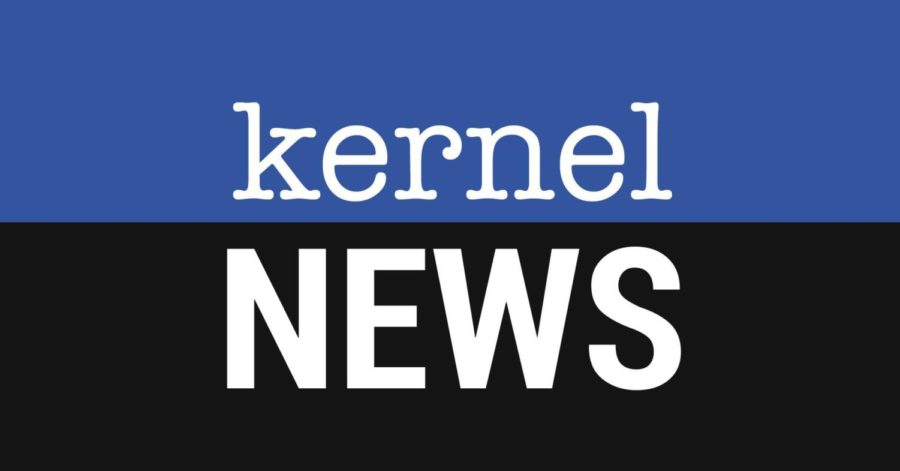Board of Trustees met Thursday to discuss COVID-19 effect on investments, fall sports and Capilouto’s contract extension
June 18, 2020
UK’s Board of Trustees met Thursday in the first of a two-day series of meetings to discuss the coming school year in its rebound from the COVID-19 pandemic.
The Investment Committee meeting started the day off by reviewing how UK’s investment portfolio fared throughout the past months.
Overall, members seemed to share a positive outlook on the university’s current state. Greg Houser, a FEG investment advisor, said that it would take a 26 point decline in the market to break UK’s portfolio.
The actual return experience during COVID-19 was less severe than what was predicted by previously curated “stress tests,” Houser said. These stress tests used historical market disruptions and the liquidity of UK’s assets to determine how long the university could sustain itself if all income sources dried up except for those related to investment portfolio returns.
According to the stress tests, using only the most liquid assets, UK would have approximately 2.8 years of liquidity coverage, and with the addition of semi-liquid assets, 4.5 years of coverage.
Later in the afternoon, the University Athletics Committee met to discuss policy and budget changes brought on by COVID-19 in the athletics program for the 2020-21 school year.
“It’s been a very trying three months for everyone, especially for our UK family,” Athletics Director Mitch Barnhart said. “There was disappointment, there were tears, hard work just gone away. (Student-athletes) were disappointed, but they handled it incredibly well.”
Barnhart said he thought UK had been on its way to a top 10 Director’s Cup finish for all sports teams before winter sports championships and spring sports seasons were cut short.
Now, the Athletics Department is preparing for the fall sports season. While circumstances can change, Barnhart said the department’s goal is to have an on-time start to football season with fans and a full return to competition.
“We are also keeping all contingencies in mind. We will not engage in speculation at this point,” Barnhart said. “We just gotta continue to take it one day at a time and work towards those opportunities to play.”
As the final members of the football team and volleyball team begin voluntary workouts this coming Monday, June 22, “stringent” screening will be implemented to protect student-athletes and staff, Barnhart said.
These measures include daily COVID screening for everyone entering athletics facilities, acknowledgement of vulnerable populations, proactive education about the virus, single entry/exit protocols and clear rules concerning PPE use.
The COVID-19 pandemic also caused a reduction in athletics revenue for the Athletics Department.
Fortunately, the department will likely be able to meet their budget, because while revenues fell 6% through the month of March, expenses fell by the same amount, due in part to lack of travel and recruitment.
The financial impact of COVID-19 will also affect the coming year’s athletics budget. Barnhart said that the current budget represents reality “in this moment” and is subject to future changes if needed.
Currently, the budget for the 2020-21 fiscal year is $148,542,760, approximately a five percent decrease from the 2019-20 fiscal year.
The Athletics Department chose to maintain the scholarships and salary and benefits budgets for the coming school year, in addition to its non-negotiable contractual obligations.
In fact, these budget amounts actually increased, due to tuition and fee adjustments for the coming year and the hiring of two new athletic trainers.
“When we set out to make these adjustments, we had one core goal in mind—we did not want to negatively impact our people, most importantly our student athletes,” he said. “That requires sacrifice, but it was a necessary sacrifice.
By not reducing scholarships or salaries, the department had to cut about 17% from the other areas of the overall operating budget. These areas include tickets, athletic supplies, food services, guest expenses, third party events, parking and advertising.
Executive Associate Athletics Director Melissa Gleason said that much of these reductions were going to be “organically-driven” anyways; since football already had one fewer home game scheduled for the year, contractual services revenue such as parking and food service would have been lower anyways.
One of the most concrete budgetary changes concerns travel. Gleason said that only the football and basketball teams will continue to use charter planes for travel—all other sports will either bus to competitions if it’s within a 6-hour radius of Lexington or fly commercially if it’s outside that range.
Barnhart said that oftentimes, student-athletes would finish competition and fly home Sunday nights so they could attend Monday morning classes, but now, they may not be able to get home as quickly.
However, virtual class infrastructure created in light of COVID-19 may help athletes to still have a presence in their classes even if they can’t make it in-person.
Overall, Barnhart says he hopes this change doesn’t affect student-athletes academically, competitively or health-wise.
“We’re going to have to be nimble, flexible in this new world,” he said. “I think that we are still waiting to find out how it’s going to impact fans in the stands, how we travel, how we care for our young people.”
The Executive Committee also met on Thursday to approve the terms of President Capilouto’s employee agreement extension, set to expire June 30, 2021.
Capilouto has agreed to extend his contract for three more years, to June 30, 2024, as well as decrease his base pay by 10% for the 2020-21 fiscal year, not including any deferred compensation.
The Executive Committee unanimously voted to recommend approval of this agreement to the full Board of Trustees, which meets Friday afternoon.
































































































































































